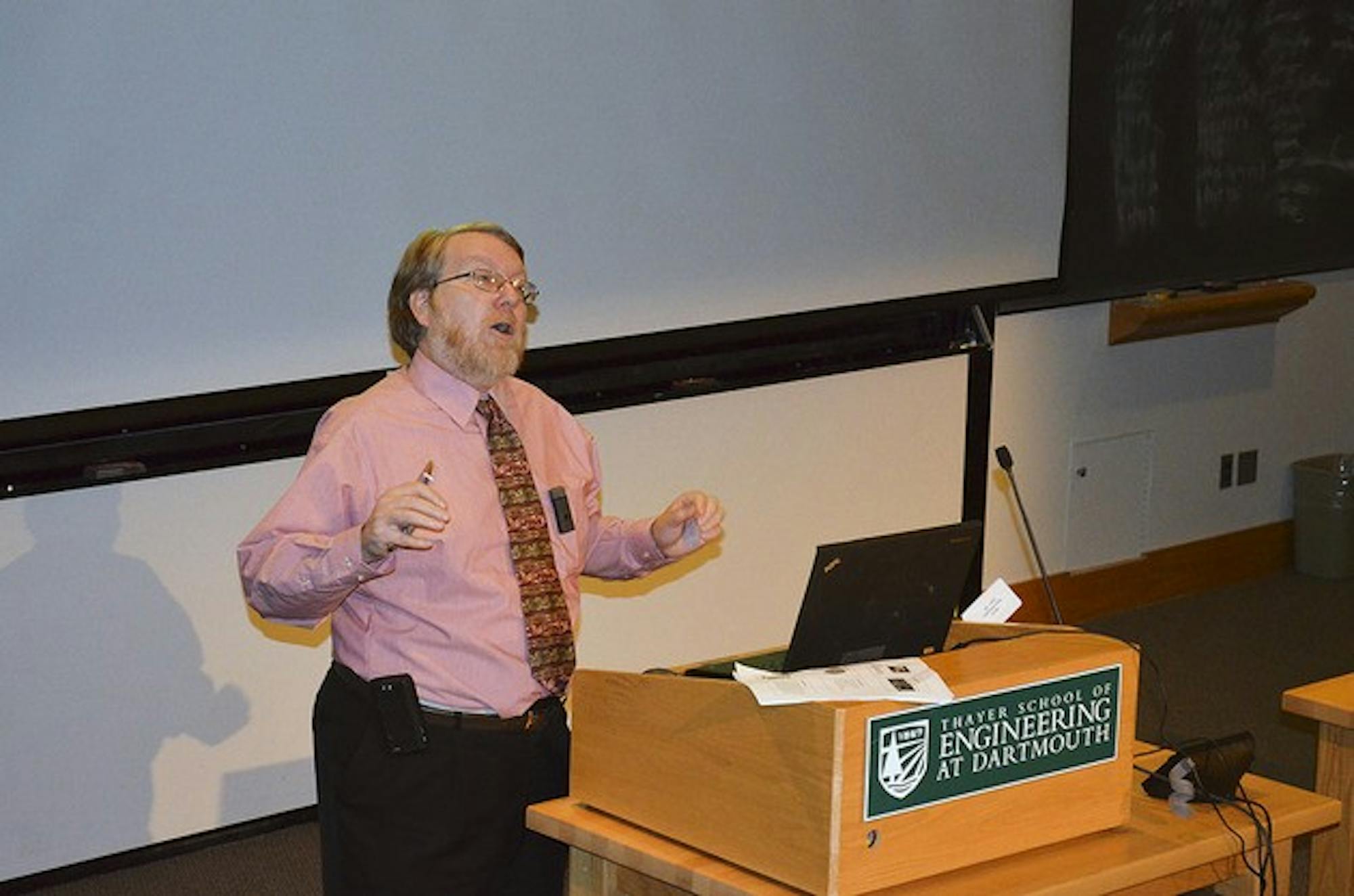The Jones Seminar lecture series, sponsored by the Thayer School of Engineering, began in the 1970s and was expanded in 1988 to incorporate a wider range of topics. Lynch's subject matter is particularly timely given that the future of energy represents a major campaign issue this election year, Lynch said.
Despite his admitted bias toward oil, Lynch said that he is not anti-regulation.
While Lynch said his family operated a private well in West Virginia, he believes nations should tap into the natural reserves of shale gasoline in order to make available cheap, efficient technology across the globe.
A lack of cheap and efficient technology for alternative energy sources will ensure that the oil industry continues to survive and thrive, he said.
"Just being green' is not good enough," he said. "People want to have something cheaper and cleaner. You can't just make something that's worse in every respect but one and expect people to buy it."
Advances in wind, solar, biodiesel and hydroelectric power have not been sufficiently marketable to create viable alternatives, he said.
Tying together economic viability and technological developments, Lynch offered predictions for the future of energy. Hydrogen fuel cell and electric cars, for example, are "bad and not ready for the major leagues," he said.
Lynch said he distrusts estimates about oil released by the government and nonprofit organizations because they do not take into account the industry's history. Projections that oil prices will soar do not acknowledge that oil has only once cost more than $80 per barrel, he said. Most forecasters adhere to the Hotelling Hypothesis, which states that prices will rise at the same rate as interest. However, oil prices are cyclical because they fluctuate with the cost of labor and drilling, he said.
The largest risk to the environment comes not from large oil or fracking companies, but from individual private drillers, Lynch said.
"You're not going to see fracking stop, but you will see regulation increase in places like Pennsylvania and Ohio," he said.
Highlighting the differences between presidential candidates, Lynch said that former Gov. Mitt Romney, R-Mass., intends to "drill, baby, drill," while President Barack Obama is in favor of clean energy.
Lorenzo Carlisle '15, who is interested in environmental studies and spent his summer on the Big Green Bus, said that Lynch helped put his interests into perspective.
"I'm always focused on alternatives to oil and gas, and this guy's knowledge and experience in the field gives you much more perspective," he said. "He really drove home the point that feasibility comes first."
Tyler Ray '14 said he attended the lecture following positive past experiences with the Jones Seminar series.
Although Ray focuses on computer engineering, oil and energy are among the major contemporary global issues and "this is where everyone's dumping the money," he said.
The seminar provided in-depth knowledge and a new lens through which to examine the energy field, he said.
"I noticed that he was really critical of his field," he said. "I was expecting him to be pro-oil given his personal and family background, but he was right about wind and solar."




